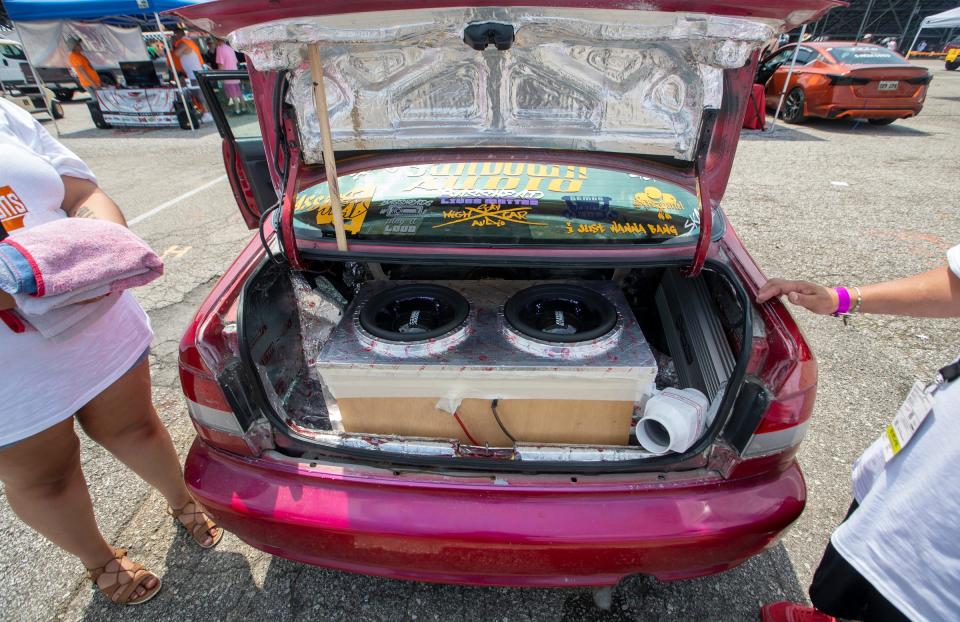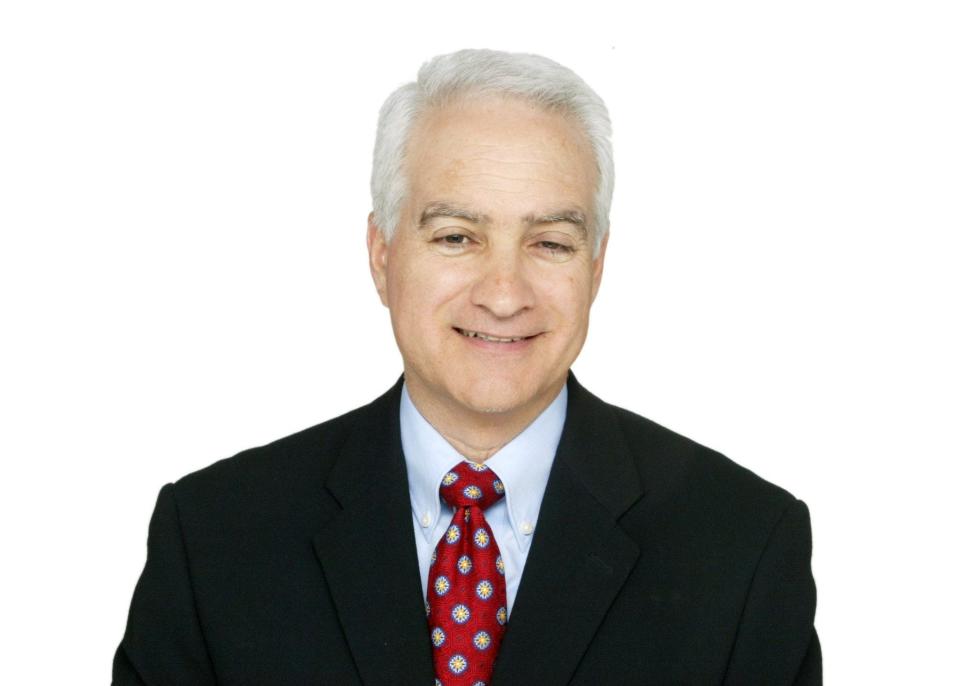New law renews power of police to ticket Florida drivers for "rhythmic bass" sound from stereo | Cerabino
Starting next month, police in Florida will be empowered to stop and ticket more drivers for playing their car stereos too loud.
“It’s a pretext to pull people over for other reasons,” Richard Catalano, 61, a St. Petersburg lawyer, told me.
The law uses radio noise as a way not only for officers to do unwarranted drug searches but it includes a provision to impound the cars for up to three days for non-criminal traffic infractions if they happen during unsanctioned beach parties, which are typically attended attended by young Black people.
Catalano is more than just a random voice when it comes to playing loud music in a car. In 2007, he was given a $73 ticket for playing a Justin Timberlake song too loud on his car radio as he drove to work.
More: For a healthy, safe Florida, ban kids at gun shows — not drag shows | Frank Cerabino
More: Pence missed chance to be heroic in West Palm weeks before Jan. 6 rally | Frank Cerabino
More: Attention, Florida Girl Scouts: This is no time to be kind, considerate of others | Frank Cerabino
Rather than pay up, the lawyer researched the Florida law, finding that officers were allowed to issue tickets for music that was “plainly audible” from 25 feet away.
“What is 25 feet?” Catalano said. “That’s nothing.”
Loud "rhythmic bass" means trouble
The Florida Department of Motor Vehicles defined “plainly audible” this way:
“The officer need not determine the particular words or phrases being produced or the name of any song or artist producing the sound. The detection of a rhythmic bass reverberating type sound is sufficient to constitute a plainly audible sound.”
Catalano challenged the noise law as a constitutional violation of free speech rights. To bolster that claim, he and his lawyers pointed to another provision of the loud-music law.
It exempted loud music or other sounds coming from vehicles that were being used for business or political purposes. So, it wasn’t the level of the sound alone that mattered. It was the purpose of it.
Or as Catalano’s lawyers argued:
“Blaring ice cream trucks and sound trucks broadcasting political messages are not covered by the statute. They can crank out “Pop Goes the Weasel” to lure children or broadcast empty political promises that can be heard 500 feet away.
“However, a citizen parked next to the ice cream or sound truck gets a citation if the ‘rhythmic bass’ from his car stereo can even be ‘detected’ just 25 feet away.”
Florida high court tosses loud music law
In 2012, The Florida Supreme Court unanimously invalidated the noise law on the grounds that it violated the First Amendment by restricting certain kinds of speech, tossing aside the state’s contention that loud music is a traffic safety hazard.

“The state simply argues that non-commercial vehicles are more dangerous to the public because they are ubiquitous,” Justice Jorge Labarga wrote. “This argument, however, fails to explain how a commercial or political vehicle amplifying commercial or political messages audible a mile away is less dangerous or more tolerable than a noncommercial vehicle amplifying a religious message audible just over twenty-five feet away from the vehicle.”
The law that goes into effect July 1 fixes that by eliminating the exemption for vehicle noises serving political or business purposes.
But what makes it suspect is that the revived loud-music law is wrapped up as a collateral issue in a bill that was primarily written to stop popup beach parties promoted to young people on social media.
Revived music law couched in beach party crackdown
Specifically, the new law is a response to last year’s Memorial Day weekend party in Daytona Beach promoted on Facebook and Instagram as “Orlando Invades Daytona.”
Thousands of young Black people flocked to the beaches, clogging roads with traffic. Police responded by temporarily shutting the bridges connecting the mainland from the beaches and restricting beach access to local residents.
The following month, another online-promoted event called the Daytona Truck Meet prompted the city to issue beach permits to local residents, as police handled the influx of thousands of trucks that created gridlock and noise complaints.
The new law designates these popup parties of 50 or more people as “special event zones.” Drivers cited in these zones face double the fine for non-criminal traffic infractions. Even more significant, it allows for the impounding of vehicles for up to 72 hours for both criminal and noncriminal traffic infractions.

Yes, playing your car stereo loud enough so that 25 feet away somebody can detect the bass beat is enough for an officer to impound your car for three days.
Amending the unconstitutional law on loud music was added to this bill – an obvious attempt to dissuade these large beach gatherings, and to give police the power to stop, search and seize vehicles for what used to be a simple ticket.
Also, with a restored power to stop a car when its radio is audible from a distance that’s equivalent to 20 bowling pins lined up end to end, police officers will have a pretext to make unwarranted drug searches anywhere in Florida.
It has been 10 years since Catalano won his case over playing loud music in his car. He has grown more philosophical over the years.
“It’s a balancing of interests,” he said. “I’m 61 years old now. The older you get, the more you think loud music is annoying.
“But kids got to make some noise,” he said. “We did it when we were kids.”
Frank Cerabino is a columnist at the Palm Beach Post, part of the USA TODAY Florida Network. You can reach him at fcerabino@gannett.com. Help support our journalism. Subscribe today.
This article originally appeared on Palm Beach Post: Florida law targets loud music from cars, social-media promoted parties

